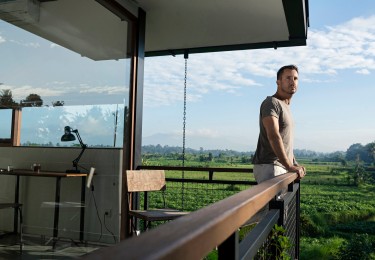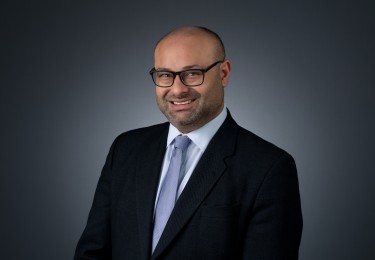Client Focus | 03 March 2022
UKRAINE INVASION: STAYING THE INVESTMENT COURSE
Following the invasion of Ukraine, Coutts brought together a distinguished panel of experts to provide some much-needed context for clients.
Become a client
When you become a client of Coutts, you will be part of an exclusive networkThe tragedy unfolding in Eastern Europe is having a devasting humanitarian impact on Ukrainians and people across the globe, while the geopolitical and economic consequences could have long-term implications.
To explore what could happen in the weeks, months, and years ahead, Coutts hosted a discussion to give clients a sense of historical perspective and some insight into the economic outlook.
An uncertain geopolitical situation
Coutts Chairman Lord Waldegrave began by noting that the current situation is dangerous, and the outcome hard to predict. However, citing Germany’s decision to substantially increase military spending for the first time in decades, he said Putin had made a strategic error by enabling the West “to become more united than it's been for a long time”.
“It's now up to the politicians and the diplomats to find a sustainable outcome,” he said. “Face has to be saved.”
Coutts International Adviser and former Foreign Office conflict expert Scott Livingstone, CMG OBE, agreed that finding a solution which worked for both sides would be difficult. “I fail to see how Putin or the West will be satisfied with Russia keeping the rebel-held areas of Eastern Ukraine,” he said. “Designing the off ramp will be difficult.”
Both Lord Waldegrave and Livingstone predicted that China and India would be key intermediaries as all parties try to end the conflict. They also expect that diplomats around the world are reaching out to anyone who could replace Putin.
Nevertheless, Livingstone highlighted three positives to hold on to:
- western unity
- the conflict is confined to one country
- ultimately, Putin will fail in achieving his goals
“One of our mantras is to stay invested in the markets, as opposed to trying to time the markets.”
Mohammad Kamal Syed, Head of Asset Management, Coutts
The macroeconomic picture is encouraging
Coutts Head of Asset Management Mohammed Syed reminded everyone that human psychology and confidence dictate how markets behave just as much as cash flow and profitability.
“You’ve got to separate the natural pessimism that comes with a major adverse event from the fundamentals, such as the resilience of the economy, inflation and interest rates,” Syed said.
It’s always worth remembering that past performance should not be taken as an indication of future performance. The value of investments, and the income from them, can fall as well as rise and you may not get back what you put in.
Thanks to regulation and moves to shore up balance sheets since the 2008 financial crisis, the global banking system has never been stronger than it is today, he added. What’s more, exposure to Russia is low in the West. “Even if banks in Russia were to face a liquidity crunch or worse, I don’t see contagion happening,” he said.
With inflation already high and likely to rise further, there is concern about what Putin might do with one of Russia’s largest exports – oil. The panel were fairly confident that OPEC, of which Russia is not a member, would step in to minimise any supply issues.
Interest rates & inflation
Coutts Chief Investment Officer Alan Higgins turned his attention to what central banks might be thinking, particularly around interest rates. Like inflation, interest rates have started to rise but Higgins believes central banks have little room for manoeuvre.
“There's just too much debt for interest rates to rise significantly – it would likely cause a recession,” he said, adding that this in turn could potentially bring inflation down later in the year.
The potential dividends of staying invested
Syed and Higgins both reiterated that there could be benefits to standing firm when it comes to your investments.
“One of our mantras is to stay invested in the markets, as opposed to trying time the markets,” said Syed.
Higgins pointed out that Coutts is not invested in any Russian securities directly and does not have any direct Russian funds. “On a typical balanced portfolio our Russian exposure is less than 0.2%,” he said.
Syed also warned that pivoting to safe haven assets, such as gold, didn’t tend to work out too well: “What tends to work out is holding your current investment course. All our portfolios are diversified and we are focused on owning quality stocks. We look at what companies’ cash flow will be in 10-20 years’ time, not over the next few weeks and months.”
watch the full recording here
For more information, please contact your private banker.
Past performance should not be taken as a guide to future performance. The value of investments, and the income you get from them, can fall as well as rise and you may not get back what you put in.
More insights






